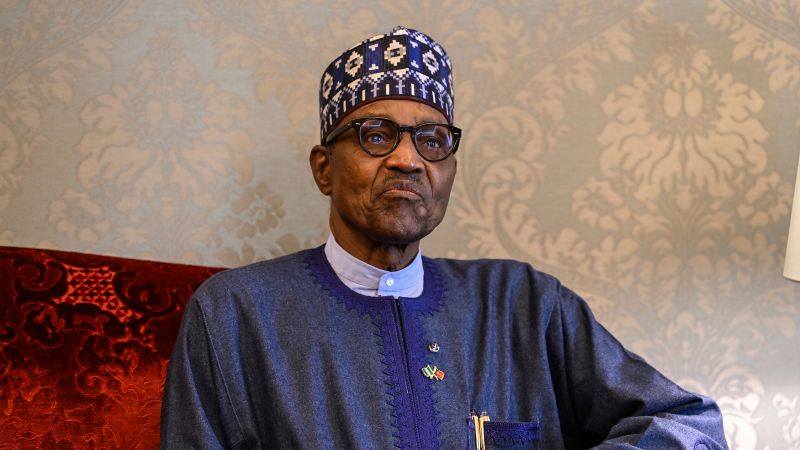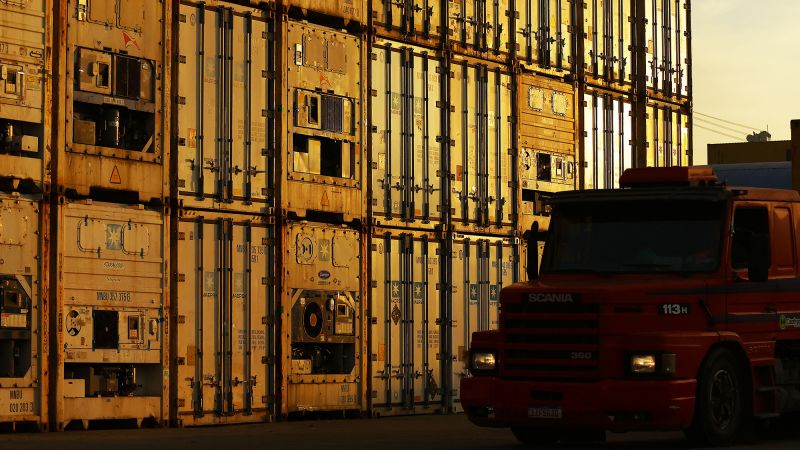Police Raid on Bolsonaro's Home and Political Headquarters

Introduction
In a dramatic turn of events, police in Brazil conducted a raid on the home and political headquarters of former president Jair Bolsonaro. The raid, which took place early Friday morning, was part of an ongoing criminal trial against the controversial leader. In addition, Bolsonaro was ordered to wear an electronic ankle tag and banned from speaking to foreign officials or approaching embassies. This move was made out of concern for the ex-president's flight risk, further intensifying the already tense political climate in Brazil.
Key Details
The raid and ankle tag are the latest developments in a series of legal troubles for Bolsonaro. He is currently facing multiple charges, including corruption and inciting violence, and has been under investigation for his handling of the COVID-19 pandemic. The search of his home and political headquarters was conducted to gather evidence and documents related to these charges. Additionally, the ban on speaking to foreign officials and approaching embassies is seen as a preventative measure to keep Bolsonaro from potentially fleeing the country.
Impact
The police raid and ankle tag have sparked widespread debate and controversy in Brazil. Many view it as a necessary step to hold the former president accountable for his actions, while others see it as a politically motivated move to discredit Bolsonaro. The restrictions placed on him have also raised concerns about his ability to continue his political career
About the People Mentioned
Jair Bolsonaro
Jair Messias Bolsonaro, born on March 21, 1955, in Glicério, São Paulo, Brazil, is a Brazilian politician and former military officer who served as the 38th president of Brazil from 2019 to 2023. He began his career in the Brazilian Army in 1973 and graduated from the Military Academy of Agulhas Negras in 1977. After leaving the military, Bolsonaro entered politics, serving as a member of the Chamber of Deputies representing Rio de Janeiro from 1991 until his presidential election in 2018[1][2][6]. Bolsonaro is known for his right-wing nationalist and populist positions, with strong support for conservative social policies and admiration for Brazil’s former military dictatorship (1964–1985). His presidency marked a shift from over a decade of leftist leadership, emphasizing pro-market economic policies, agricultural development, and deregulation, often at the expense of environmental protections, particularly in the Amazon rainforest. His handling of the COVID-19 pandemic was widely criticized for downplaying the virus’s severity[2][3]. During the 2018 presidential campaign, Bolsonaro survived a stabbing attack that required emergency surgery but continued his campaign successfully, winning the runoff election against Fernando Haddad. He narrowly lost re-election in 2022, obtaining about 49% of the vote[3][6]. Following his 2022 election defeat, Bolsonaro was implicated in efforts to undermine Brazil’s democratic institutions. In September 2025, the Supreme Federal Court convicted him for planning a military coup attempt, sentencing him to over 27 years in prison[1][6]. Despite controversies and legal troubles, Bolsonaro remains a significant figure in Brazilian politics with a dedicated conservative base. His presidency and post-presidential events reflect ongoing political polarization in Brazil[1][2][3][6].
About the Organizations Mentioned
Brazilian Police
The **Brazilian Police** system is a complex, multi-layered law enforcement network structured to maintain public order and investigate crimes at both federal and state levels. It includes eight main institutions as established by the Federal Constitution, divided primarily between preventive policing and criminal investigation duties[1]. At the **federal level**, the core institution is the **Federal Police (Departamento de Polícia Federal, DPF)**. It acts as the primary investigative body for crimes against the federal government, such as drug trafficking, terrorism, human smuggling, and crimes with interstate or international repercussions. The Federal Police also supervise immigration, border control, and arms regulation, functioning similarly to the FBI in the United States[1][3]. It operates under the Ministry of Justice and Public Security, with units distributed nationwide and is led by a general director appointed by the president[2]. The **Federal Highway Police** patrols federal highways to maintain order and prevent crimes like cargo theft, also playing a role in environmental protection, especially in the Amazon region[3]. The **Federal Railway Police** exists but has been largely non-functional since 2022[1]. The recently created **Federal Penal Police** oversees federal prison agencies and their officers[1]. At the **state level**, law enforcement is split between the **Military Police**, responsible for preventive patrol and maintaining public order, and the **Civil Police**, tasked with criminal investigations[1][2]. State police forces are generally under the control of state governors but coordinate closely with federal authorities. Municipal police forces are rare exceptions, with São Paulo being one notable city with its own municipal police[2]. The Brazilian Police face challenges including allegations of human rights violations and systemic impunity, acknowledged in government human rights plans[5]. Nonetheless, they have achieved key roles in combating organized crime domestically and internationally, leveraging cooperation through INTERPOL via the National Central Bureau in Brasília[4]. The Brazilian Police play a crucial role in public security, border control, and combating sophisticated criminal networks
COVID-19 Pandemic
The **COVID-19 pandemic** refers to the global outbreak caused by the novel coronavirus SARS-CoV-2, which began in late 2019 and led to unprecedented worldwide health, social, and economic challenges. While not an organization itself, the pandemic has mobilized numerous institutions, governments, and organizations globally to respond, manage, and mitigate its effects. The pandemic was first identified in Wuhan, China, in December 2019, and the World Health Organization (WHO) declared it a Public Health Emergency of International Concern in January 2020, followed by a pandemic declaration in March 2020. The virus rapidly spread worldwide, affecting virtually every country and triggering massive public health responses[1][6]. Key organizations like the U.S. Centers for Disease Control and Prevention (CDC), WHO, and various national health bodies launched initiatives to control the spread, develop diagnostics, and accelerate vaccine development. Notably, Operation Warp Speed (U.S.) was a landmark public-private partnership initiated in April 2020 to expedite vaccine production, resulting in the rapid development and authorization of mRNA vaccines by Pfizer-BioNTech and Moderna by the end of 2020[2][3]. Medical institutions such as UC Davis and Northwestern Medicine played critical roles in patient care, testing innovation, clinical trials, and long COVID treatment programs. UC Davis, for instance, developed rapid PCR tests and established one of the first clinics to address long COVID symptoms, illustrating the healthcare sector's technological and clinical advancements during the crisis[4]. Global public health systems adapted by expanding surveillance, laboratory capacity, and workforce training, leveraging existing programs like CDC-supported Field Epidemiology Training Programs and national public health institutes to enhance pandemic response capabilities worldwide, especially in lower-income countries[5]. Although the official public health emergency status ended in May 2023, the pandemic's effects persist in healthcare practices, remote work technologies, and public health awareness[3][4]. The COVID-19 pandemic thus represents a pivota









